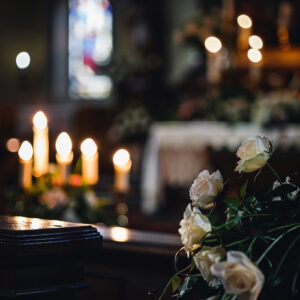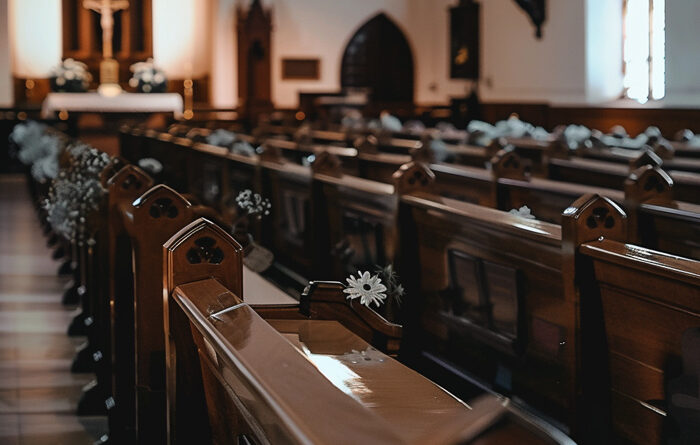
Introduction to Cultural Sensitivities in Miami Funeral Planning
Planning a funeral can be an emotionally taxing process, made even more complex by the need to honor the cultural traditions and customs of the deceased and their family. Miami, a city marked by its diverse populace, presents a particular array of cultural considerations in funeral planning. The goal of this article is to provide a professional and informative guide that helps readers understand and respect the various cultural nuances when arranging end-of-life ceremonies in this vibrant metropolitan area.
Cultural Diversity and Funeral Traditions in Miami
Miami’s cultural tapestry includes a wide range of communities, each bringing their own funeral traditions and rituals. The city’s significant Latin American population, for example, may observe specific customs that are deeply rooted in their ethnic heritage. Catholic services, the preference for mausoleum entombment, and the practice of the novena — a nine-day period of prayer following the death — are common. The strong Cuban influence in Miami has also forged distinct practices such as the “cabildo” — a gathering affiliated with Afro-Cuban religions that combines mourning with spiritual rites.
The Caribbean influence is evident as well, with Haitian funerals often incorporating extended wake services and ceremonies influenced by Vodou beliefs. Similarly, the Jamaican tradition of Nine Night, a celebration of the deceased’s life with food, music, and storytelling, showcases another aspect of the cultural mosaic found in Miami funeral practices. These diverse customs necessitate a conscious approach to funeral planning, ensuring services reflect the unique cultural identity of each community.
Respecting Religious Practices and Beliefs
Religious beliefs significantly affect funeral arrangements, dictating everything from the manner of body preparation to the timing of the services. Miami’s religious landscape features numerous faiths, each with particular rites and ceremonies. Jewish funerals, for instance, often require prompt burial, typically within 24 hours, and feature specific rituals like the “Tahara,” the ceremonial washing of the body. Islamic funerals, meanwhile, might include the “Salat al-Janazah,” a collective prayer for the deceased, and also prioritize a swift interment.
Accommodating these various religious prescriptions calls for a considerate and informed approach. Funeral directors and planners in Miami must be well-versed in these traditions to guarantee that the services they provide respect the deceased’s faith while supporting the bereaved family through their grief.
Adapting to Family Wishes and Customs
Even within broader cultural and religious contexts, individual families may have unique wishes and customs to which they adhere. These traditions can range from specific readings or music selections during the ceremony to the inclusion of personal items with the deceased. In Miami, where family ties are often strong and diverse heritage is celebrated, honoring these personal cultural nuances is critical. Personalization can come in many forms and reflect the life and passions of the departed, adding a deeply meaningful layer to the ceremony.
Funeral service providers in Miami need to be sensitive to these personalized rituals. Taking the time to understand the family dynamics and the deceased’s cultural background is central in organizing a service that truly embodies the spirit and legacy of the individual.
Considering Diverse Funeral and Memorial Options
The choice between burial and cremation is another significant aspect influenced by cultural considerations. While some cultures express a clear preference, others may leave the decision open to individual or family discretion. In Miami, this means that funeral service providers must offer a broad array of options to cater to every conceivable preference. This includes traditional burial services with a viewing or wake, cremation with a memorial service, or even more contemporary eco-friendly alternatives, such as green burials or biodegradable urns for ashes.
Miami’s funeral planners must also be flexible and creative in accommodating the desires of families who seek to combine multiple cultural practices or who wish to innovate within their traditions. This flexibility ensures that a funeral or memorial service is not just a routine procedure but a profound expression of cultural heritage and individual identity.
Linguistic Considerations in Funeral Services
Effective communication is paramount in funeral planning, and in a city as linguistically rich as Miami, this often requires multilingual capabilities. Many families may be more comfortable conducting arrangements in their mother tongue, whether it’s Spanish, Haitian Creole, or another language prevalent in Miami’s international community. The need for bilingual or even multilingual funeral directors is fundamental to serve these families adequately. This linguistic accommodation guarantees that all aspects of the funeral arrangements are thoroughly understood and that the family’s wishes are accurately executed.
Conclusion and Final Thoughts
Funeral planning in Miami is a process deeply ingrained with cultural significance. To organize a service that is both respectful and reflective of the deceased’s cultural identity, a comprehensive and empathetic approach is necessary. Funeral service providers must consider the myriad of cultural, religious, and personal customs prevalent in Miami’s diverse population, adapting their services to meet these varied needs. Linguistic accessibility and a menu of burial and memorial options further contribute to an environment in which every individual’s life can be honored in a way that speaks to their unique background and beliefs. Through cultural sensitivity and adaptability, funeral planners in Miami can offer comfort and solace to grieving families, assuring them that their loved ones are commemorated in a manner consistent with their cultural heritage and personal wishes.

What are the key cultural considerations one should keep in mind when planning a funeral?
Cultural considerations in funeral planning are vital as they reflect the values, beliefs, and traditions of the deceased and their community. Key considerations include understanding the specific rituals, prayer services, burial or cremation practices, mourning periods, and dietary customs. It is also essential to consider the attire expected of attendees, the music or readings that may be part of the service, the role of family members in the ceremony, and any post-funeral gatherings. Each culture has unique customs, so it is imperative to seek guidance from cultural leaders or family members of the deceased to ensure a respectful and appropriate funeral service.
How should one address the topic of death in multicultural settings?
Addressing the topic of death in multicultural settings requires sensitivity, respect, and awareness. It is important to communicate in a manner that is empathetic and considerate of individual beliefs and customs. Avoid making assumptions about someone’s cultural or religious practices. Asking open-ended questions and listening carefully can help understand specific needs and preferences. It is also wise to be mindful of language barriers and to provide information or support in the preferred language if needed. Respect for diversity and individual choices is paramount in such discussions.
Can a funeral service incorporate elements from different cultures?
Yes, a funeral service can incorporate elements from different cultures, particularly in intercultural families or for individuals who have been part of multiple cultures during their lifetime. When planning such a service, it is important to blend these elements respectfully and coherently. Family members and cultural advisors can provide insight and guidance on which elements can be combined without offending cultural sensibilities. It is essential to be open, sensitive, and inclusive, ensuring that all cultural traditions represented are honored equally and that the service is a meaningful tribute to the person’s life and legacy.





